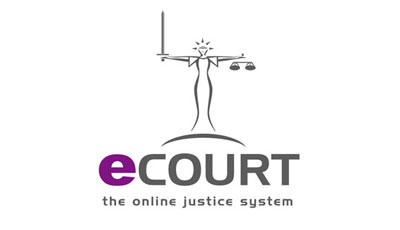Online court proposed to resolve claims of up to £25,000

Civil justice council calls for internet-based dispute resolutions system similar to eBay’s to be available within two years
The UK justice system should receive a radical overhaul for the digital age with the creation of an online court to expand access to justice and resolve claims of up to £25,000, the official body that oversees civil courts has recommended.
In a transformative proposal for largely lawyer-free, virtual courtrooms, the civil justice council is calling for an internet-based dispute resolution system to be available within two years.
Backed by Lord Dyson, the master of the rolls, who is head of the civil judiciary in England and Wales, the report says existing services – such as eBay’s disagreement negotiation procedure and Cybersettle’s blind-bidding operations – provide prototypes worth studying.
The online dispute resolution (ODR) model proposed in the report envisages a three-tier process: evaluation through interactive services and information, negotiation with online “facilitators” and finally, if agreement has not been reached, resolution by a trained judge relying on electronic submissions.
Only the judge need be legally qualified. If necessary, telephone hearings could be built into the last stage. Rulings by the online judge would be as enforceable as any courtroom judgment.
The report’s principal author, Prof Richard Susskind, who is president of the Society for Computers and Law, said the UK was falling behind other countries that have begun to incorporate online elements into their judicial systems. His recommendations include “automated negotiation” where differences may be resolved “without the intervention of human experts” by relying on blind bidding processes.
The Ministry of Justice has already committed £75m a year for capital spending to modernising technology within the HM Courts and Tribunal Service (HMCTS). Some of that money should be used to start a pilot project later this year, the report urges.
“ODR is not science fiction,” it states. “Each year on eBay around 60 million disagreements amongst traders are resolved through ODR. This is a well established way of resolving disputes, appropriate for the internet age.
“Other jurisdictions, notably Holland and Canada, are already forging ahead. If we aspire to have a court system that leads the way, then we already have some catching up to do.”
Cuts to legal aid, declines in state funding and lawyers’ high fees have already rendered the county courts that deal with smaller claims inhospitable for an increasingly large number of unrepresented litigants. “Our civil justice system is creaking,” the report acknowledges. “Many would argue that we have indeed run out of money.”
Funding for HM online court (HMOC) could also come from savings made in traditional courts. “If a large number of disputes come to be resolved by HMOC, this would have significant implications for the court estate. There will be a reduction in need for many of the current buildings and the land on which they sit.”
Many issues remain unresolved, including whether there would be online court listings and public access to proceedings as exists in traditional civil courts. Some litigants may feel deprived of an assumed right to have their day in court, where they hope to air grievances before a sympathetic judge.
In order to compel, for example, reluctant landlords or awkward tenants to participate, some form of online reputation system – such as that used on the TripAdvisor website – might have to be created, Susskind suggested.
About 80% of the UK population are estimated to be internet users, he added, and only 3% of the adult population have no one who can help them go online.
“The current system is too costly, too complex and too slow, especially for litigants in person,” Susskind said. “We call for support from all the political parties for [online courts] that will reduce costs and increase access to justice.”
Lord Dyson, who is also chairman of the civil justice council, said: “There is no doubt that ODR has enormous potential for … the 21st century. Its aim is to broaden access to justice and resolve disputes more easily, quickly and cheaply. We have been very slow off the mark in this country.
“I was in Singapore and Australia recently and I was ashamed to see what they are doing there. When you go around our county courts you see mountains of paper everywhere.”
Asked whether online courts would lack authority, resulting in litigants becoming less honest, Dyson remarked: “There are an awful lot of people who don’t tell the truth in courts that do have a lot of gravitas.” Both Dyson and Susskind came to the briefing equipped with traditional legal technology: fountain pens.
A further generation of “enabling technologies” – artificial intelligence, “big data” stores, crowd-sourcing, virtual meeting rooms and affective computing, which aims to detect human emotions – could lead to more sophisticated online justice in future, the report contemplates.
Changes to civil procedure rules are likely to be necessary to authorise online courts, and legislation may also be required.
Commenting on the report, an HMCTS spokesperson said: “We welcome publication of this important and thought-provoking report. We agree that On-line Dispute Resolution is an important area and one that we are actively exploring in more detail in the context of the reform of court and tribunal services.”
Source: the guardian – Online court proposed to resolve claims of up to £25,000




























